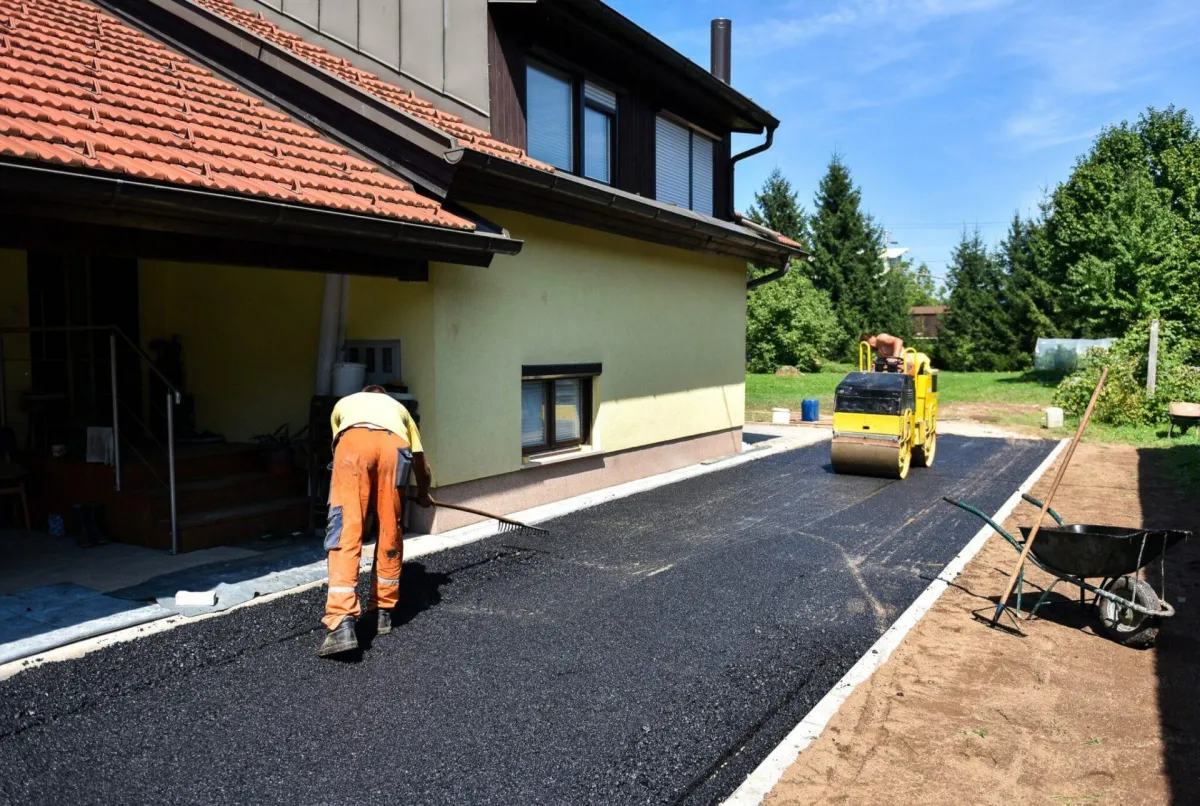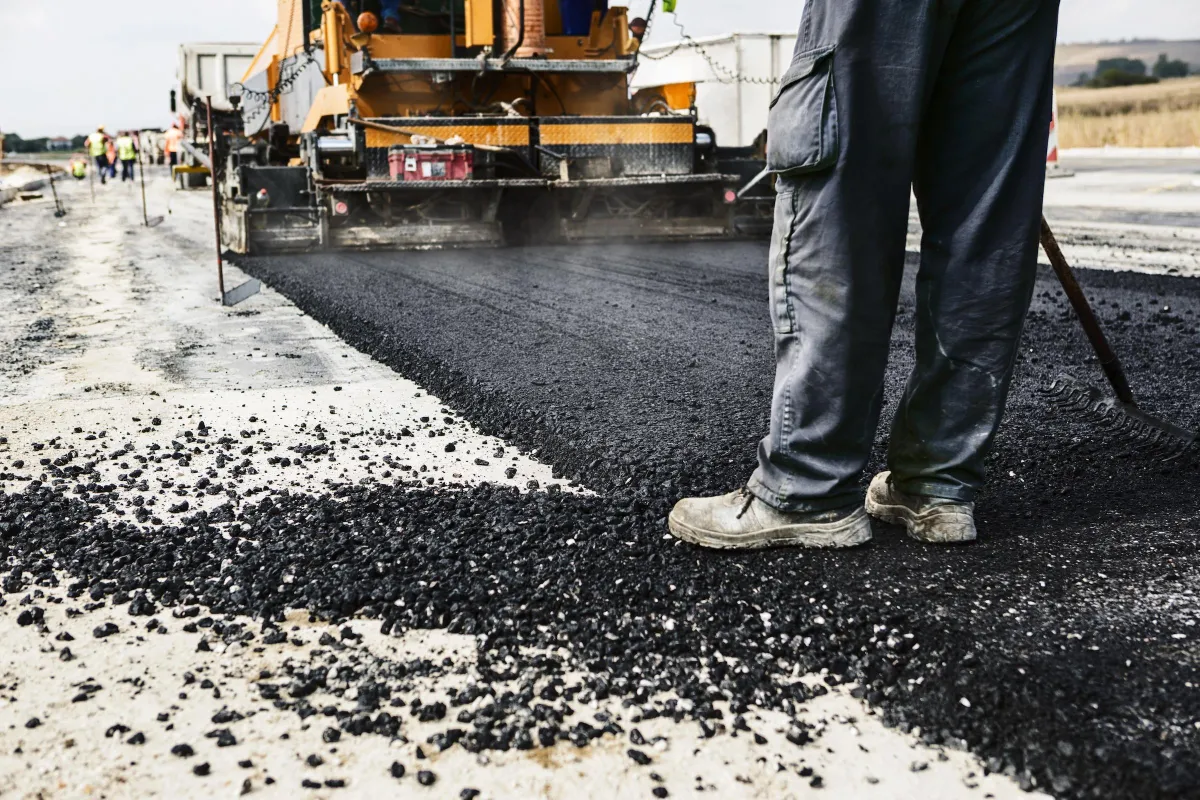
Florida Driveway Paving: Durable Surfaces in Lake Worth, West Palm, Davie, Plantation & Surrounding Areas
Homeowners across Lake Worth, West Palm, Davie, Plantation, Lacoochee, Coral Springs, Deerfield Beach, Pompano, Delray, and Parkland, FL face unique challenges when choosing the right driveway material. Florida’s intense heat, UV rays, heavy rains, and shifting soils require smart material choices and expert installation. This guide answers the most common questions about Florida driveway paving, costs, maintenance, and how SoFlo Paving Inc. delivers long-lasting results tailored to South Florida’s climate.
What Climate Challenges Affect Florida Driveways?
Florida’s subtropical climate brings four major challenges for driveway durability. Intense heat and UV rays soften asphalt paving and cause concrete to expand, while heavy rains create erosion, standing water, and algae growth if proper drainage is not in place. The sandy soils common throughout South Florida often shift, weakening the foundation beneath driveways and leading to sinking or cracking. Additionally, acidic conditions slowly wear down the materials that support the surface. By addressing these environmental factors, homeowners in West Palm, Lake Worth, and Coral Springs can extend the lifespan of their driveways.
How Does Heat and Sunlight Impact Driveway Longevity?
Florida’s constant exposure to sunlight puts additional stress on driveway materials. Asphalt softens under extreme heat, which can lead to ruts and surface deformation, while UV rays gradually break down sealants and protective coatings. Concrete, on the other hand, tends to expand in the heat, creating cracks when there is not enough flexibility in the design. For homeowners in Davie, Plantation, and Delray, selecting heat-reflective materials and applying UV-resistant sealants is key to ensuring a seal driveway that remains strong under the Florida sun.
Why Is Proper Drainage Essential for Florida Driveways?
Rainfall in areas like Pompano, Parkland, and Deerfield Beach can be heavy enough to compromise driveways that are not built with effective drainage systems. Without proper grading, water collects on the surface and seeps beneath, weakening the sub-base and causing premature damage. Sloped driveways help redirect runoff, while modern solutions such as permeable paver systems or subsurface drains like French and channel drains can control water more effectively. When these methods are included in the design, homeowners can avoid costly repairs and enjoy longer-lasting driveways.
How Do Florida’s Sandy Soils Affect Driveway Installation?
The sandy and acidic soils found in Lacoochee and coastal towns across South Florida present unique challenges for driveway construction. Because the soil shifts easily, it cannot fully support a heavy surface without reinforcement. Professional contractors counter this issue by using compacted limestone screenings, adding layers of geotextile fabric, or applying soil stabilization techniques. These methods help create a stronger base that prevents sinking or uneven settling, allowing the driveway to remain stable and functional for years to come.
What Are the Best Driveway Materials for Florida Homes?
Florida homeowners have several strong options when selecting driveway materials. Asphalt is a cost-effective choice with quick installation, though it requires routine sealcoating every one to two years. Concrete offers excellent heat resistance and durability with minimal maintenance, making it one of the most reliable surfaces for the climate. Brick and interlocking pavers provide a stylish, flexible option that handles drainage well, while limestone and shell driveways give a natural, coastal look and allow for excellent water permeability. Stamped concrete is another popular choice for those seeking a decorative design that mimics stone or brick while requiring fewer joints. Each of these options performs differently depending on whether you live in West Palm, Plantation, or Parkland, where rainfall and soil conditions vary.
What Are Typical Driveway Costs in South Florida?
The cost of a driveway in South Florida depends on both the material chosen and the site conditions. Asphalt driveways typically cost between $2 and $5 per square foot, while concrete installations range from $4 to $8 per square foot. Paver systems, valued for their appearance and drainage performance, generally range from $10 to $20 per square foot, with brick pavers running slightly higher at $12 to $25 per square foot. More natural options such as limestone and shell typically fall between $3 and $7 per square foot, while stamped concrete is priced between $8 and $15 per square foot. Site preparation and drainage needs in towns like Delray, Davie, and Lake Worth will also influence the overall investment.
How Can Florida Homeowners Maintain Their Driveways?
Routine care plays a big role in extending the life of a driveway in Florida’s harsh climate. Asphalt requires sealcoating every 12 to 18 months, and any cracks should be repaired quickly to prevent further damage. Concrete should be resealed every three to five years, cleaned regularly, and checked to ensure expansion joints remain intact. Paver driveways need occasional pressure washing and joint sand refilling to keep them stable. Shell and limestone driveways may require regrading and compaction every few years to maintain an even surface. With proper maintenance, homeowners in Coral Springs, Deerfield Beach, and other South Florida communities can protect their investment.
What Are the Eco-Friendly Driveway Options in Florida?
As Florida communities in Palm Beach and Broward counties place greater emphasis on stormwater management and sustainability, eco-friendly driveway materials have become more popular. Permeable pavers are an excellent option because they allow water to filter through rather than run off into streets and storm drains. Recycled materials such as reclaimed asphalt and concrete aggregates are another environmentally conscious choice, reducing landfill waste. Natural stone and shell driveways are also highly sustainable since they require minimal processing and blend well with coastal landscapes. These options not only help protect Florida’s waterways but may also qualify homeowners for green building incentives.
Why Choose SoFlo Paving Inc. for Driveway Installation?
SoFlo Paving Inc. provides expert driveway installations that are designed specifically for Florida’s climate. The company emphasizes precise grading and drainage planning, ensuring that each project can withstand heavy rain and shifting soil conditions. Homeowners benefit from access to high-quality asphalt, concrete, and paver materials, along with protective sealants that resist UV damage and storm-related wear. With years of experience and a deep understanding of local regulations in Lake Worth, Plantation, Davie, and surrounding areas, SoFlo Paving has earned the trust of homeowners across West Palm, Coral Springs, and Delray. Clients consistently highlight the company’s reliable craftsmanship and long-lasting results.
Final Thought
Florida’s climate creates unique challenges for driveway installation and maintenance, but the right materials, proper drainage, and routine care can make all the difference. Whether you’re battling heat, heavy rains, or shifting soils, working with experts like SoFlo Paving Inc. ensures your driveway not only looks great but also stands strong for years to come.

How long do driveways last in Florida?
A well-installed and maintained concrete driveway can last 25–30 years, asphalt around 15–20 years, and pavers even longer with proper upkeep.
How often should I seal my Florida driveway?
Asphalt should be sealcoated every 12–18 months, while concrete driveways typically need resealing every 3–5 years.
What is the most durable driveway material for Florida homes?
Concrete and pavers are generally the most durable. Pavers perform especially well in Florida because they allow flexibility for shifting soils and offer excellent drainage.
Can heavy rain damage my driveway?
Yes. Without proper grading and drainage, water can erode the base, create cracks, or cause pavers to shift. Installing drainage systems prevents these issues.
Are eco-friendly driveway options available in Florida?
Absolutely. Permeable pavers, recycled asphalt, and natural shells are eco-friendly choices that manage stormwater runoff and reduce environmental impact.
